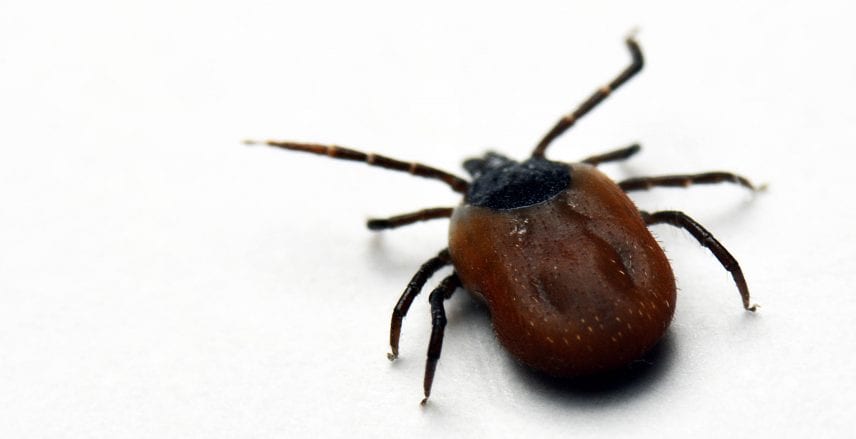Both the climate and the topography of the Delaware Valley make it a draw for people who enjoy getting out in nature. While the forests and rivers lure campers, hikers, and others throughout the year, these factors also make this location an ideal home for a variety of different types of pests. Among these, ticks are one of the smallest and often most feared. Difficult to spot, they can easily get under your clothes and embedded into your skin, where they are hard to remove and have the potential for causing serious illnesses. At Pointe Pest Control, we can help to protect you against these dangers by eliminating ticks from around your home and property. Here’s the 411 on the types of ticks in our area, the damage they can cause, and ways you can protect yourself.
Common Ticks in Pennsylvania, New Jersey and Delaware
According to Penn State University, there are hundreds of different types of ticks, which can pose a serious risk for both humans and animals. Those most commonly found in our area include:
- Black-Legged Tick: These ticks are often found in the southeastern portion of Pennsylvania and other parts of the state. Known to be aggressive against humans at all life stages, the adult ticks are more likely to appear during the months of January through March while younger ticks, known as nymphs, come out later in the summer and along lake beds. Being bitten from a western black legged tick can put you at risk of Lyme disease, Rocky Mountain Spotted Fever, and tularemia, which is a rare infectious disease that can do damage to skin, lungs, eyes, and lymph nodes.
- American Dog Tick: These also carry a high risk for transmitting tularemia and Rocky Mountain Spotted Fever. American dog ticks are even more aggressive than western black legged ticks and move faster in attaching themselves to a host. They tend to inhabit grassy areas and trails and have traditionally been seen in greater numbers east of the Rocky Mountains.
- Lone Star Tick: This type of tick is distributed throughout the U.S., although it is commonly found in southeastern Pennsylvania near urbanized areas. It is known to vector tularemia, Rocky Mountain spotted fever, and can cause tick paralysis in humans and dogs.
Take Ticks Seriously
Unfortunately, a number of factors have resulted in an increase in the number of ticks in our area and changes in the time of year they often appear. Any time you are outdoors in wooded or grassy areas, you need to be aware of the potential threat ticks can pose.
Out of the various diseases and infections ticks can transmit, Lyme disease poses one of the biggest threats. Characterized by a bulls-eye patterned rash, it can cause flu-like symptoms such as fever and body aches, along with excessive fatigue and muscle aches that can last for months after a bite. The number of diagnosed cases of Lyme disease throughout the country continues to increase each year. To protect yourself against it and other tick associated conditions, consider the following steps:
- When hiking, avoid tall grasses, weeds, and brushy areas;
- Opt for light colored clothing, which makes ticks easier to spot;
- Wear long sleeves and pants, tucking pant legs into your socks or boots;
- Thoroughly check yourself and your dog after every hike to ensure no ticks have attached themselves;
- If you do find one, remove it carefully with tweezers and save the tick in a plastic bag so it can be checked if you develop symptoms.
Our Tick Exterminators Are Here to Help
At Pointe Pest Control, we can help prevent ticks from becoming a major problem in your yard and in on the land or structures surrounding your home or business. With their potential for causing serious illnesses for both humans and animals, ticks are a problem that need to be dealt with immediately, in the swiftest and most effective manner possible. Contact our tick control experts today to get a free estimate regarding our services. We can help you win the fight against these pests, using methods that are safe, eco friendly, and always backed by our customer satisfaction guarantee.


